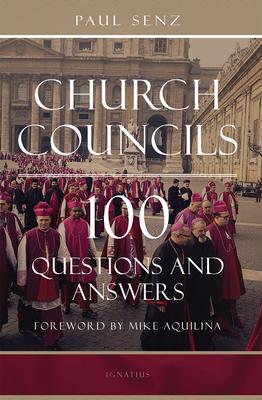From the days of the apostles, the Church's pastors and teachers have met, when necessary, to defend and explain the Catholic faith. From the "Council of Jerusalem" in the Acts of the Apostles, through the Councils of Nicaea, Constantinople, Trent, and Vatican II, these meetings of the world's bishops are some of the most important events in the life of the Church and the most profound expressions of the Church's teaching authority.
More than a history of the twenty-one ecumenical councils, this question-and-answer book provides a practical and theological explanation of them. It provides the historical context that led to each council, the reasons it was convened, the major events that happened during the council, and the impact of its teachings, then and now.
While surveying some of the most important issues and controversies in the history of the Church, the author also explains and defends the teaching authority of the bishops as successors to the apostles, particularly when teaching together as a single, united body, in union with the pope.
